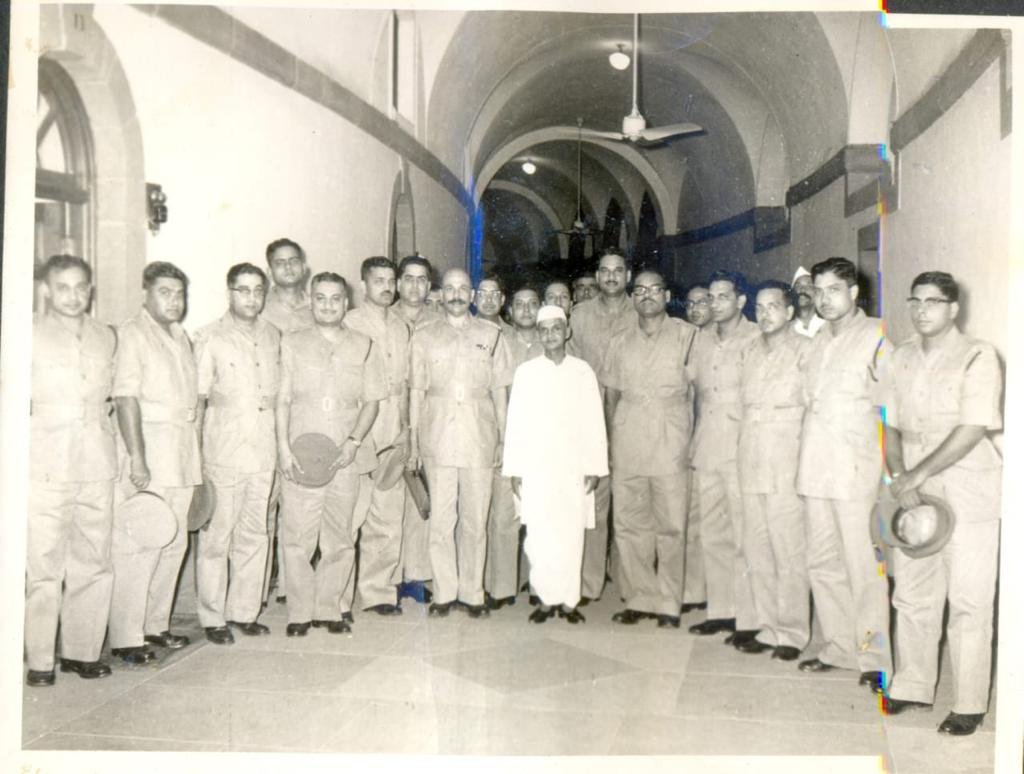
Lal Bahadur Shastri, India’s second Prime Minister, was a leader known for his simplicity, integrity, and deep dedication to the nation. He played a crucial role in shaping modern India, guiding the country through one of its most challenging times, including the 1965 Indo-Pak war. His famous slogan, “Jai Jawan, Jai Kisan” (Hail the Soldier, Hail the Farmer), became a powerful message that still resonates today. Despite his short tenure as Prime Minister, his contributions to India’s political, economic, and social landscape were profound.
Early Life and Struggles
Born on October 2, 1904, in Mughalsarai (Uttar Pradesh), Lal Bahadur Shastri grew up in a humble family. His father, a school teacher, passed away when he was just a toddler, leaving his mother to raise him under difficult circumstances. Despite financial hardships, he was a brilliant student and developed a strong sense of patriotism at an early age. Inspired by Mahatma Gandhi’s call for freedom, he joined the Indian independence movement and became an active participant in non-cooperation movements, often facing imprisonment for his activities against British rule.
Shastri studied at Kashi Vidyapeeth in Varanasi, where he earned the title of “Shastri,” meaning scholar. This title later became his identity, symbolizing his dedication to learning and knowledge. Throughout his early life, he remained deeply influenced by the ideals of truth, non-violence, and selfless service, which shaped his political career.
Role in Independent India
After India gained independence in 1947, Lal Bahadur Shastri took on significant responsibilities in Jawaharlal Nehru’s government. As Railway Minister, he introduced reforms to improve railway services and took moral responsibility for train accidents, even resigning from his position—an act of accountability rarely seen in politics. Later, as Home Minister, he worked on uniting the country and strengthening internal security.
Becoming Prime Minister and Facing Challenges
After Jawaharlal Nehru’s death in 1964, Shastri was chosen as India’s second Prime Minister. Though he was soft-spoken and humble, his leadership was firm. He took charge at a time when India faced severe challenges, including food shortages, economic difficulties, and tensions with Pakistan.
One of his greatest contributions was leading India through the 1965 Indo-Pakistan war. When Pakistan launched military aggression, Shastri responded with determination, stating that India would fight until victory. Under his leadership, the Indian Army defended the country successfully, leading to the Tashkent Agreement with Pakistan in January 1966.
During his tenure, India also faced a severe food crisis, with shortages threatening millions. Shastri encouraged the nation to become self-reliant in food production, promoting the Green Revolution that transformed Indian agriculture. To set an example, he personally skipped meals at home and urged citizens to do the same once a week, showing solidarity with struggling farmers. His iconic slogan “Jai Jawan, Jai Kisan” symbolized his belief that India’s strength lay in both its soldiers and farmers.
Mysterious Death in Tashkent
Lal Bahadur Shastri’s sudden death on January 11, 1966, in Tashkent (Uzbekistan, then USSR) remains one of India’s biggest mysteries. He had traveled there to sign a peace agreement with Pakistan after the 1965 war. Hours after the agreement was signed, he passed away under mysterious circumstances, with many suspecting foul play. However, no official investigation was ever conducted.
Legacy and Influence
Despite his short tenure, Lal Bahadur Shastri’s impact on India was immense. He was a leader who led by example, embodying simplicity, honesty, and selfless service. His commitment to the people, especially soldiers and farmers, remains an inspiration. Though he never sought the spotlight, his leadership proved that true greatness comes from actions, not words.
Even today, his principles guide India’s policies on self-reliance, national security, and agricultural progress. His life teaches us that leadership is not about power or personal gain but about serving the nation with dedication and humility.
Awards
- Lal Bahadur Shastri, India’s second Prime Minister, was posthumously honored with the Bharat Ratna in 1966, recognizing his exceptional service to the nation.
In his memory, the Lal Bahadur Shastri National Award for Excellence was established in 1999 by the Lal Bahadur Shastri Institute of Management (LBSIM) in New Delhi. This esteemed award honors individuals for outstanding contributions in fields such as public administration, academics, and management. Notable recipients include Dr. A.P.J. Abdul Kalam, Dr. Manmohan Singh, and Smt. Sudha Murty